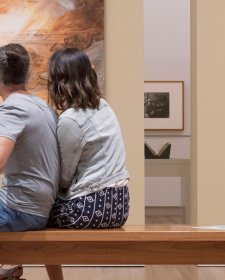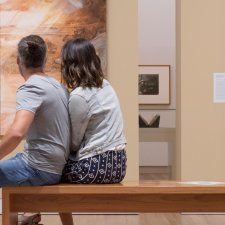It’s true that I’ve chosen, of course, to be a writer and one does choose in that way, one does choose such a profession. At the same time, once having chosen the profession, you must make everything else happen, you are the only one that can make anything occur. It’s you who sit at the desk and look at the blank sheet of paper, which is a thing that is much referred to by French poets, this blank sheet of paper, and it’s a very hard day’s work sometimes to sit looking at a blank sheet of paper, that’s the hardest day’s work when you don’t feel anything to put on it. It is certainly a very painful, solitary work because once you’ve elected to do it, you must go on, and somehow you must create it, it’s an act of faith every morning that one does.
On the other hand, having done other work to earn my living, I think that it’s a very privileged and lucky life as well, because you do what pleases you, you do what only you can do. The only justification for doing it would be that you think you have something to offer that nobody else can produce. And so one’s very fortunate to be living that life, and living from one’s own resources, but it makes many, many difficulties and I think that, although everybody, every writer I know works differently and has different impetus, all the same I think there’s a rather old-fashioned feeling that one ought to be in a state of hardship in order to work well.
And it’s certainly true that griefs and troubles do contribute to one’s writing. They can be very powerfully used in writing. At the same time, for myself, I think that since my life became materially easier and happier in so many ways, I think it’s been a releasing factor. I think that having served one’s apprenticeship is very important, to have lived a life in a world which was uncongenial is very important but it’s also very important to have conditions which are conducive to one’s writing.













